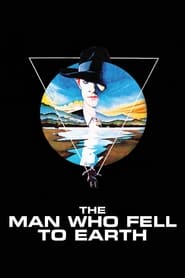Foundering on the notion that a maximum number of thematic vectors automatically guarantees an ‘open work’, Roeg and [screenwriter] Mayersberg have blocked out most of the options in their design with dead ends. Yet Bowie bears the burden of this confinement so admirably that his monotonal expressive range paradoxically becomes the film’s one steady form of coherent expression – a cool, quivering reed at the center of a hurricane that is full of sound and fury, signifying nothing.
— Jonathan Rosenbaum (Monthly Film Bulletin)
Sometimes Roeg’s experiments yield stunning results, evocative, and dreamlike, but occasionally they seem arbitrary and random, as if Roeg was screwing around without any idea of what his choices meant. Man Who Fell to Earth is an aggressively imperfect film, alternately beautiful, mystifying, and embarrassing, and it’s a film to be treasured as much for its ambitious failures as for its successes. Like Icarus and Newton, Roeg sometimes aims for more than he’s able to accomplish, but the moments where he approaches the sun are glorious.
— Matt Noller (Slant Magazine)
The film offers us a few glimpses of Newton and his family plodding around the dunes of their dying planet, and what strikes us is the conventionality of these rote sci-fi images. Roeg is more interested in showing how life on Earth is stranger and more disconcerting than anything in outer space.
— Graham Fuller (Criterion)
Synopsis: Thomas Jerome Newton is an alien who has come to Earth in search of water to save his home planet. Aided by lawyer Oliver Farnsworth, Thomas uses his knowledge of advanced technology to create profitable inventions. While developing a method to transport water, Thomas meets Mary-Lou, a quiet hotel clerk, and begins to fall in love with her. Just as he is ready to leave Earth, Thomas is intercepted by the U.S. government, and his entire plan is threatened.

